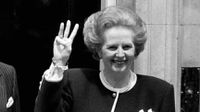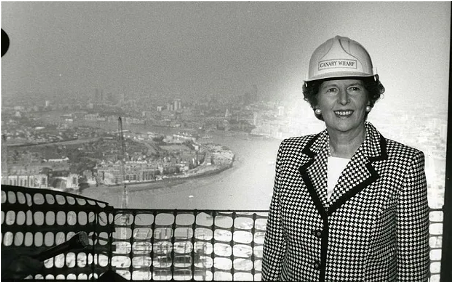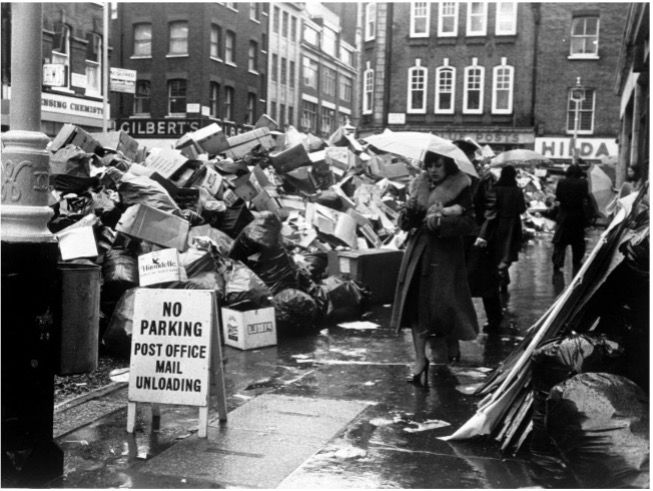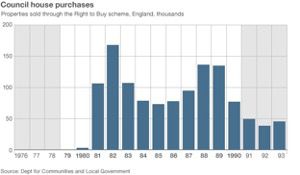
In 1979 Margaret Thatcher made history. As leader of the Conservative Party, she guided her party to victory in the elections, allowing her to form a government for the people of the United Kingdom (UK). She thereby became the first woman to hold the title of Prime Minister in the history of the UK. To describe the Iron Lady’s career as that of “gender trailblazer” would, however, be an understatement: her policies had a disproportionate impact on British society. As Prime Minister, Margaret Thatcher promoted economic and political freedom. Read on to learn about some of her key policies as Prime Minister of the United Kingdom and lessons for South Africa.
"Free enterprise has enabled the creative and acquisitive urges of man to be given expression in a way which benefits all members of society.” -Margaret Thatcher

Margaret Thatcher privatized more than 30 state-owned enterprises during her tenure as Prime Minister.
Margaret Thatcher implemented a policy to privatise state-owned companies to create opportunities for British citizens. How these businesses fared in the market ceased being a government priority. Relinquishing ownership over the companies empowered the state to focus on its core functions of delivering services to communities. Among the companies that were privatised were British Airways, British Telecom, British Steel and British Gas. Shares in these companies were sold to the public, presenting them with an opportunity to acquire economic assets.
As a result of the privatisation policy, Margaret Thatcher created what was termed a “share-owning democracy”. These companies’ shares were sold at below-market value and when they became profitable in the market, the shareholders became wealthy. Privatisation creates opportunities for citizens to own shares, which could become valuable economic assets. Furthermore, it also increases an organisation’s chances of becoming more productive. Nationalisation, on the other hand, allows the state to remain in control of businesses while either limiting or denying the possibility of owning shares.
South Africa’s numerous state-owned enterprises are highly indebted and unprofitable. The only way forward is for the state to relinquish control over their management – and, with it, ownership. Eskom’s debt has reached nearly half-a-trillion Rand. A news report revealed that South African Airways would be given a R10 billion bailout. Instead of wasting more public money by constantly bailing these enterprises out, politicians should privatise them. This would help South Africa to become a “share-owning democracy” and would stop these companies from constantly draining the fiscus. In fact, if the companies are returned to profitability under private management, they will make a positive contribution to the fiscus by paying taxes.
“Our third task will be to strike a fair balance between the rights and the duties of the trade unions. In the last few years, Labour have fed and nourished the worst instincts in the trade union movement. The result is that what originally sprang from a deep and genuine fellow-feeling for the brotherhood of man is today disliked and feared, and does more damage to our country than ever before in its history.” -Margaret Thatcher.

During the Winter of Discontent, striking workers left uncollected refuse on British streets.
When Margaret Thatcher took office as Prime Minister, trade unions were extremely powerful and influential in the country’s politics. This was because instead of striving to be independent organisations that represented the interests of their members, they became an extension of the Labour Party, overshadowing the concerns of the members who might have had liberal or conservative views. One of Margaret Thatcher’s successes was in reducing the influence of the trade union movement, thereby consolidating democracy.
During her term as Prime Minister, labour laws were changed in a way that curbed the power of trade unions significantly. Measures were put in place to ensure that trade union members had to vote on a ballot to take industrial action, rather than allowing the union leadership to simply decide on its own when to embark on industrial action. Furthermore, measures were also implemented to keep them accountable for damaging the property of others. What this demonstrates is that Margaret Thatcher’s leadership was effective in preventing trade unions from abusing their power, which preserved democracy.
In 2019 the Anglican Archbishop of Cape Town, Thabo Makgoba, noted concerns about the high levels of aggression in South Africa, namely in the mining sector. In his address, he alluded to miners’ strikes, in which at least four people were killed.[3] In 2020 COSATU threatened to “collapse” the public sector if the government froze increases for its workers. South Africa’s trade union movements threaten stability and have caused deaths during protests. Cyril Ramaphosa’s government should implement stricter laws against abusive trade unions, in the same way that Margaret Thatcher did when she was Prime Minister of the UK.
“If a Tory does not believe that private property is one of the main bulwarks of individual freedom, then he had better become a socialist and have done with it.” -Margaret Thatcher.

Margaret Thatcher’s policies encouraged people to buy their council flats, turning more people into property-owners.
During her tenure as Prime Minister, Margaret Thatcher introduced a right-to-buy policy that encouraged people to buy council flats, rendering them independent from the government. During this programme’s implementation, home ownership rose dramatically, from 9.7 million to 12.8 million property-owners. Her policies helped millions of people to become property owners, giving them an asset that could be used to build intergenerational wealth.
South Africa should implement Margaret Thatcher’s home ownership policy because it helped to transform more people into property-owners. In South Africa the government wants to pass legislation that will destroy ownership over assets such as property. If the Expropriation Bill is passed, no one’s ownership rights over an asset like a property on which a home is built will be secure. The government also has an adversarial relationship with people who rent farms, which shows that it could abuse its expropriation powers. Ivan Cloete is a previously disadvantaged farmer who was almost evicted due to alleged corruption within the department of land reform. Policies that transform more people into home owners with freehold title deeds would be beneficial for South Africans, as it would give them security of tenure.
Conclusion
Margaret Thatcher was a leader who carried the flag of liberty high as she changed the United Kingdom. She was a leader of principle who cared about the trajectory of her society. She used her convictions to change society, so that it could be freed from the failed ideas on which socialism is built. South Africa should learn from her term so that it can put itself on a similar trajectory, where the government will focus on promoting economic liberty for the citizens. To facilitate this development, the state should consider privatising state-owned enterprises, curbing the power of trade unions and promoting home ownership.
Image Sources in descending order:
